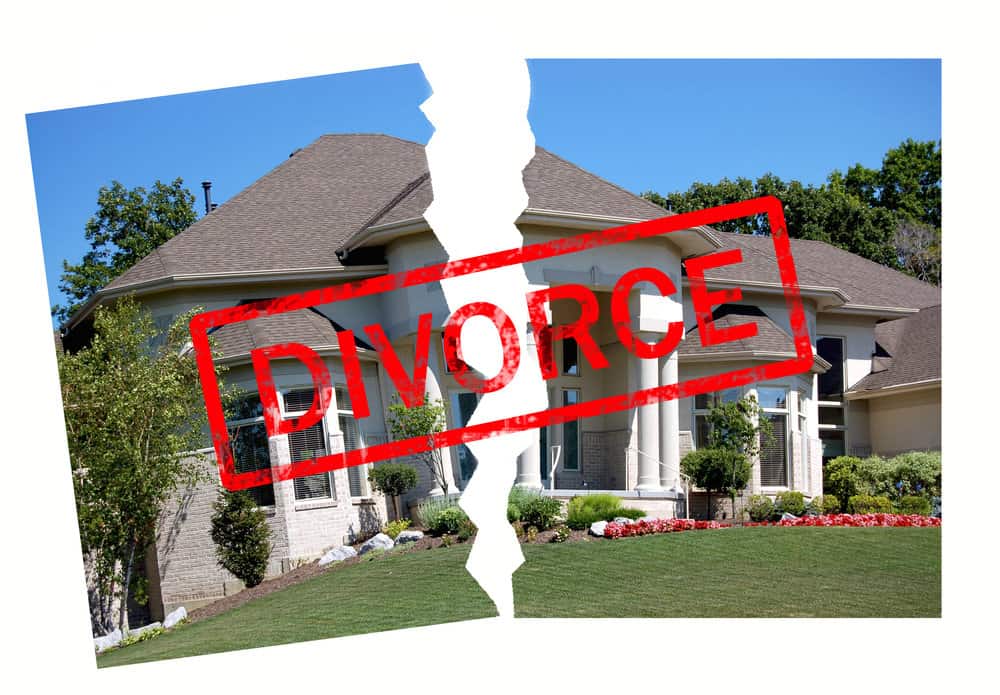In the process of a divorce, determining the fate of the marital home is often one of the most contentious and emotionally charged issues. The house is a significant financial asset and may embody sentimental value for both spouses. Consequently, the question of who gets the house can be complex and challenging.
Various factors come into play when deciding on this matter. Courts may consider each spouse’s financial situation, their contributions to the property, and potential impacts on the children involved. Additionally, it is essential to examine the laws and regulations governing property division within the divorcing couple’s jurisdiction, as these laws can differ substantially.
When navigating this intricate subject, the divorcing parties must clearly understand their legal rights and responsibilities. By being well-informed, individuals can better advocate for themselves, ultimately reaching a fair and equitable resolution for both parties.
Understanding Property Division in Divorce
Community Property vs Equitable Distribution States
When it comes to divorce, different states in the US follow different property division laws. Generally, they fall into two categories: community property states and equitable distribution states. In community property states, such as California, assets and debts acquired during the marriage are typically divided equally between the spouses. In contrast, equitable distribution states divide marital assets based on what the judge deems fair and equitable but not necessarily equal.
Marital Vs Separate Property
To determine the division of assets during a divorce, it’s essential to distinguish between marital property and separate property. Marital property includes all assets acquired during the marriage, regardless of which spouse owns them. Separate property, on the other hand, includes assets obtained before the marriage and gifts and inheritances received by either spouse during the marriage.
Community Property Rules
In community property states, spouses are considered equal owners of all marital property, and assets are usually split 50-50 during a divorce. These states include:
- Arizona
- California
- Idaho
- Louisiana
- Nevada
- New Mexico
- Texas
- Washington
- Wisconsin
Exceptions exist within community property rules — for example, the judge may grant an unequal property division if deemed necessary.
Equitable Distribution Rules
Equitable distribution states determine property division based on what the judge considers fair and just. The judge takes into account various factors, such as:
- The duration of the marriage
- Each spouse’s income and earning capacity
- The standard of living established during the marriage
- The age and health of both spouses
- The contributions of each spouse to the acquisition of assets
State laws vary in equitable distribution states, but some common factors that the judge considers when dividing property include the length of the marriage, the age and health of the spouses, and the custodial parent’s needs.
In conclusion, understanding the differences between community property and equitable distribution states and the distinction between marital and separate property is crucial for those going through a divorce. Being aware of the specific rules governing property division in the state where the divorce takes place is equally important, as this will affect the outcome of the case.
Factors Determining Who Gets the House
Children and Custodial Parent
The family home is often important in a divorce, especially if children are involved. Courts may consider the children’s stability and prefer the custodial parent to retain the house. Factors such as the children’s schooling and social support networks are considered when deciding who gets the house.
Financial Stability and Income
Another crucial factor in determining who gets the house is both parties’ financial stability and income. The court assesses each spouse’s ability to maintain the property while keeping up with other financial responsibilities, such as child support. If one spouse has a higher income and can afford the house without putting a strain on their finances, they may be granted the house.
Maintenance and Mortgage Payment
A home’s maintenance costs and mortgage payments also play a role in determining who gets the house. The responsibility of paying the mortgage is often split between the spouses. The court considers each spouse’s financial ability to independently maintain and pay for the house.
Emotional Attachment
Emotional attachment to the house can be another determining factor. If one spouse has a stronger emotional tie to the house or if it has been in the family for generations, the court may be more inclined to grant them the property. However, this is often secondary to financial factors and children’s needs.
Prenuptial Agreements
Prenuptial agreements can also influence the decision on who gets the house. Suppose a prenuptial agreement exists and specifically outlines how the house should be divided in the event of a divorce. The court must uphold such terms in that case, provided the agreement is legally valid.
In summary, various factors contribute to deciding who gets the house in a divorce. They include the needs of the children, financial stability, maintenance and mortgage payments, emotional attachment, and prenuptial agreements. Each situation is unique, and courts weigh these factors in reaching a fair resolution.

Options for Dividing the House
Selling the House and Dividing the Proceeds
One option for divorcing couples to consider is selling their marital home and dividing the proceeds. This is often the simplest solution, allowing both parties to walk away with their equity share and avoid further financial entanglements. It is essential to reach an agreement on the selling price and how to divide the costs related to the sale, such as agent commissions and closing costs.
One Spouse Buying Out the Other
Another option is for one spouse to buy out the other’s interest in the property. This can happen when one party wants to keep the home and can afford to pay the other spouse their share of the equity. The buyout can be done through refinancing the mortgage, allowing the spouse who remains in the house to take over the full balance of the loan in exchange for a cash payment to the other spouse. The title would then be transferred solely to the buying spouse, removing the other from future ownership claims.
Co-Ownership Post Divorce
In some cases, divorcing couples may choose to maintain co-ownership of the marital home post-divorce. This option can benefit couples with children, providing stability and minimizing unnecessary disruption in their lives. However, co-ownership requires high cooperation and communication between the ex-spouses. Establishing clear agreements about responsibilities and expenses, such as mortgage payments, taxes, and maintenance costs, is crucial.
Renting Out the Property
Renting out a marital home is another option that divorcing couples can consider. Instead of selling the house or transferring ownership, both parties can remain co-owners and rent the property to a tenant. This arrangement can generate passive income for both parties, which can be used to cover the mortgage and any related expenses. The rental income can be divided according to the agreement between the spouses and can reflect their respective contributions to the property, such as downpayment, mortgage payments, and maintenance.
Please note that every situation is unique, and these options should be thoroughly discussed with a legal and financial adviser to ensure the best outcome for both parties involved in the divorce.

Navigating the Divorce Process
Hiring a Family Law Attorney
Hiring a family law attorney or using an online service is crucial when facing a divorce. A qualified expert understands both parties’ legal rights and responsibilities and can guide them through the complex process. They can also provide valuable advice on issues such as spousal support and division of assets, including the house.
Seeking Mediation and Negotiation
Mediation and negotiation are often essential in resolving disputes over who gets the house in a divorce. A neutral third party helps the couple reach a mutually satisfactory settlement agreement. Compared to a lengthy court battle, this collaborative approach can save time, money, and emotional distress.
Understanding the Divorce Agreement
The divorce agreement outlines the terms and conditions of the separation, including the division of marital assets, liabilities, and responsibilities. Both parties should carefully review the agreement with their respective attorneys to ensure a fair and equitable distribution of the marital home and other possessions.
Addressing Financial Aspects
When determining who gets the house in a divorce, several financial aspects must be considered:
- Existing mortgage: If the home has an outstanding mortgage, both parties should assess their ability to cover the monthly payments, taxes, and insurance.
- Buyout: In some cases, one spouse may buy out the other’s financial interest in the property.
- Selling the home: Couples may decide to sell the house and split the proceeds according to the agreed-upon terms in the divorce agreement.
- Spousal support: If one party is responsible for spousal support, this may also impact who retains ownership of the house.
By addressing these financial aspects and working with a skilled family law attorney, a fair resolution can be reached regarding who gets the house in a divorce.
Other Considerations and Tips
Joint Mortgage and Credit Impact
When dealing with a joint mortgage during a divorce, it is important to understand the potential impact on both parties’ credit scores. This is because both individuals are responsible for the mortgage payments, and if one party fails to pay, it could negatively affect the other’s credit score. To avoid this, some couples may refinance the mortgage, sell the house, and pay off the remaining balance.
Tax Implications
Divorce can have significant tax implications, especially regarding property division. For example, if one party is awarded the house and opts to sell it, they may be subject to capital gains tax. Additionally, alimony payments may be tax-deductible for the payer and taxable income for the recipient, which could affect both parties’ overall tax liabilities.
Considering a Cash-Out Refinance
A cash-out refinance may be an option for couples who want to divide the home’s value without selling it. This involves refinancing the existing mortgage to a new loan, which can provide cash to the spouse not keeping the house. This method ensures that the spouse receiving the valuable asset maintains ownership while the other spouse receives a portion of the home’s value in cash.
Working with a Real Estate Agent
Involving a real estate agent in the process of deciding who gets the house in a divorce can be beneficial for both parties. An experienced agent can provide valuable insight into the local housing market, help estimate the home’s value, and guide the couple through any necessary steps if they decide to sell the property. Additionally, a real estate agent can assist with finding new homes for both parties, if necessary.
FAQs
How is property divided in a divorce?
In general, there are two ways that property can be divided during a divorce: equitable distribution and community property. Equitable distribution means that assets are divided fairly but not necessarily equally. Community property is a system in which marital assets are evenly divided. The rules governing property division vary depending on the jurisdiction where the divorce occurs.
What factors are considered in determining who gets the house?
Several factors may be taken into account, including:
- The financial contributions each spouse made toward the house
- The length of the marriage
- Whether there are children involved and their needs
- The income and earning potential of each spouse
- The age and health of each spouse
- The sentimental value attached to the house
Can one spouse buy out the other’s share of the house?
Yes, in some cases, one spouse may buy out the other spouse’s share of the house. This can be done by refinancing the mortgage or using other assets to pay off the remaining balance.
What happens if the couple can’t agree on who gets the house?
The decision may be left to the courts if the couple cannot agree. A judge will consider the factors above to decide in the best interest of both parties.
Remember, each divorce case is unique, and the outcome depends on the specific circumstances of the individuals involved. It’s essential to consult with a legal professional to obtain the best advice in your specific situation.




